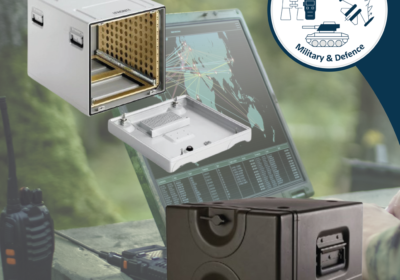Cloud service providers shorten the journey to the industrial Internet. Cloud services provide practical, low-cost, and adaptable solutions to address many aspects of the industrial Internet. Benefits can include managed security, cloud data storage, analytics, applications, and improved information delivery (integration).
It’s exciting to think about the enormous business opportunities created by industrial Internet. However, harnessing its value on the plant floor necessitates managing many diverse details. One reason why many promising industrial Internet programs never get implemented or reach the market is because there is simply too much technology that must be addressed before the program can be launched.
Leveraging the cloud
To shorten the journey to successful industrial Internet programs, many organizations are turning to cloud service providers for help. Cloud services provide practical, low-cost, and adaptable solutions to address many aspects of the industrial Internet (see Figure 1). For this discussion, the “cloud” is the delivery of IT capability using remote infrastructure accessed via the Internet; “cloud services” provide access to IT services similar to those delivered from equipment owned by the user’s organization. Companies that specialize in delivering industrial Internet services through the cloud typically provide solutions that organizations use to build their industrial Internet programs, the most common of which include managed security, cloud data storage, analytics, applications, and information delivery (integration).
Managed security: The stakes are high when a plant floor connects to the Internet. Data coming from machines and processes are considered top secret, and access to the devices that control machines absolutely must be strictly limited to authorized personnel. There are many reasons to limit access to control devices—the most important of which is safety.
Every industrial Internet program should start with a well-designed and maintained Internet security framework that incorporates security policies, procedures, standards, and guidelines. Internet security frameworks require constant attention to identify and respond to vulnerabilities and threats as they are identified. Working with a team with experience in providing solutions to this dynamic requirement is one reason why many organizations see the value of using a skilled cloud service provider to manage their security requirements. Further, working with a cloud service provider with a proven track record of providing security solutions tailored for industrial Internet programs gives the organization an even bigger advantage (see Figure 2).
 For example, many industrial machine suppliers recommend that their customers agree to allow technicians to have remote access to equipment so the machine builder can deliver remote troubleshooting and support. This remote support is usually made possible by using a virtual private network, or VPN, to connect machines to programming software on a technician’s PC. These remote support devices can prevent substantial downtime by giving technicians fast access to equipment that controls machines and processes. But the daunting prospect of unauthorized access through an exploited system vulnerability causes many machine owners to block remote support access. This creates a dilemma for the machine builder as well as the owner because the value proposition of increased uptime that comes with remote support is too high to ignore.
For example, many industrial machine suppliers recommend that their customers agree to allow technicians to have remote access to equipment so the machine builder can deliver remote troubleshooting and support. This remote support is usually made possible by using a virtual private network, or VPN, to connect machines to programming software on a technician’s PC. These remote support devices can prevent substantial downtime by giving technicians fast access to equipment that controls machines and processes. But the daunting prospect of unauthorized access through an exploited system vulnerability causes many machine owners to block remote support access. This creates a dilemma for the machine builder as well as the owner because the value proposition of increased uptime that comes with remote support is too high to ignore.
How can manufacturing organizations allow remote access and benefit from remote support while maintaining a high degree of security? One way is to rely on a company that specializes in cloud services to manage security. Using a third party to provide a security framework creates advantages for both manufacturers and machine OEMs. With solutions tailored to be delivered by machine OEMs, manufacturers are assured that no access will occur without their consent and knowledge. The machine OEMs can appreciate granular access control with an audit trail and transparent reporting features. In addition, when a security framework is in place, even greater benefits for the manufacturer can be delivered, such as cloud data storage.
Cloud data storage: Critical data can be found everywhere on the typical manufacturing plant floor. The diversity of these data makes it a daunting task for manufacturers to design and maintain a comprehensive data backup and recovery solution. Cloud data storage services can address this need by using a secure network connection to access plant floor devices and remotely monitor values and make periodic program backups. In a cloud-based solution, data are stored off-site in compliance with appropriate regulations and best practices for data backup and recovery programs.
There are many types of critical plant floor data, such as machine programs and the code that runs in the motion controllers, PLCs, and HMI devices. When any of these devices fails, it’s invaluable to have a recent copy available from a secure website. Some machines run specialized setups, batches, or recipes, from files stored in an HMI, CNC, or PC on the plant floor. To avoid losing the latest and most effective program file, it’s considered a best practice to have them automatically uploaded and protected.
Another example of critical data is with key process parameters required by compliance standards. These monitored parameters can be stored on digital chart recorders or on local data historians, but an offsite backup can bring peace of mind knowing that these values will not be lost. With the right data collection technology in place, a cloud database can monitor and store production information, downtime codes, quality test results, tool-and-die wear profiles, consumable usage, and other dynamic machine data. Some industrial Internet specialty cloud service companies have complete solutions that include the agents and software tools necessary to acquire data from machines and other plant floor equipment.
After secure access for data storage is set up, the cloud services provider ensures that the data itself are secure, private, protected, and backed up. When a plant floor goes online, the amount of stored data grows quickly, and the industrial Internet challenge shifts from acquiring and storing data to becoming one of big data analysis.






